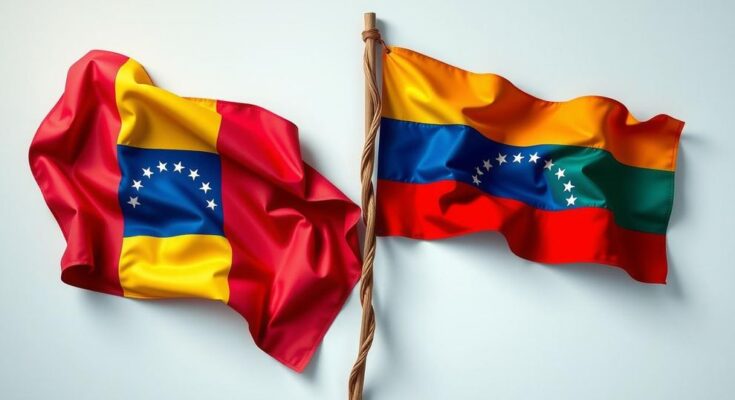Guyana accuses Venezuela of violating the Argyle Agreement and ICJ orders by announcing elections in the disputed Essequibo region. The Guyanese government emphasizes that these actions threaten international law and Guyana’s sovereignty. Guyana reaffirms its commitment to seek legal resolution through the ICJ, urging Venezuela to cease provocative measures and engage in meaningful dialogue.
The government of Guyana has raised serious concerns regarding recent actions and statements made by the Venezuelan government, asserting that they constitute significant violations of the Argyle Agreement and a binding order from the International Court of Justice (ICJ), effective since December 2023. The Ministry of Foreign Affairs emphasized that the Argyle Agreement, signed in St Vincent and the Grenadines, mandates both nations to refrain from escalating their territorial dispute. Guyana particularly objected to President Nicolás Maduro’s announcement regarding the election of a “Governor of the Guayana Esequiba,” claiming it undermines diplomatic efforts and increases tensions. The Ministry described this unilateral action as a breach of international law and the UN Charter, asserting that the residents of the Essequibo region are legally recognized as Guyanese.
Additionally, the Venezuelan government had previously claimed that a referendum indicated broad support among its citizens for asserting control over the Essequibo region, despite warnings from the ICJ against such annexation. The court had directed Venezuela to avoid actions that modify the territorial status quo, a directive that Guyana insists Maduro’s actions flagrantly violate. Guyana maintains that its commitment to the ICJ process is unwavering, calling for Venezuela to abandon pursuits that infringe upon its sovereignty. The Guyanese government is urging for constructive dialogue while emphasizing that it will not tolerate any unilateral acts undermining its territorial integrity. Furthermore, they seek assurances from Venezuela concerning adherence to international obligations, highlighting the importance of a peaceful resolution to the longstanding border dispute.
Guyana’s territorial dispute with Venezuela stems from the unresolved status of the Essequibo region, an area rich in resources and strategically significant. The origins of this conflict trace back to the Arbitral Award of October 3, 1899, which established the land boundary between the two nations. In March 2018, Guyana took legal action by filing a case with the ICJ, seeking validation of this award, which Venezuela has historically contested. The Argyle Agreement of December 2023 aimed to foster dialogue and prevent escalation of tensions while the ICJ evaluated the matter. Recent declarations by Venezuelan authorities have reignited fears of unilateral actions that could jeopardize peace and violate international legal commitments.
In conclusion, the dispute over the Essequibo region between Guyana and Venezuela has reached a critical juncture, exacerbated by recent Venezuelan actions perceived as violations of international agreements. The Guyana government reaffirms its commitment to legal avenues through the ICJ while emphasizing the necessity for Venezuela to adhere to diplomatic principles and avoid unilateral measures. As the situation develops, Guyana underscores its readiness for constructive dialogue, contingent upon Venezuela’s adherence to international law and respect for Guyana’s sovereignty.
Original Source: jamaica-gleaner.com




